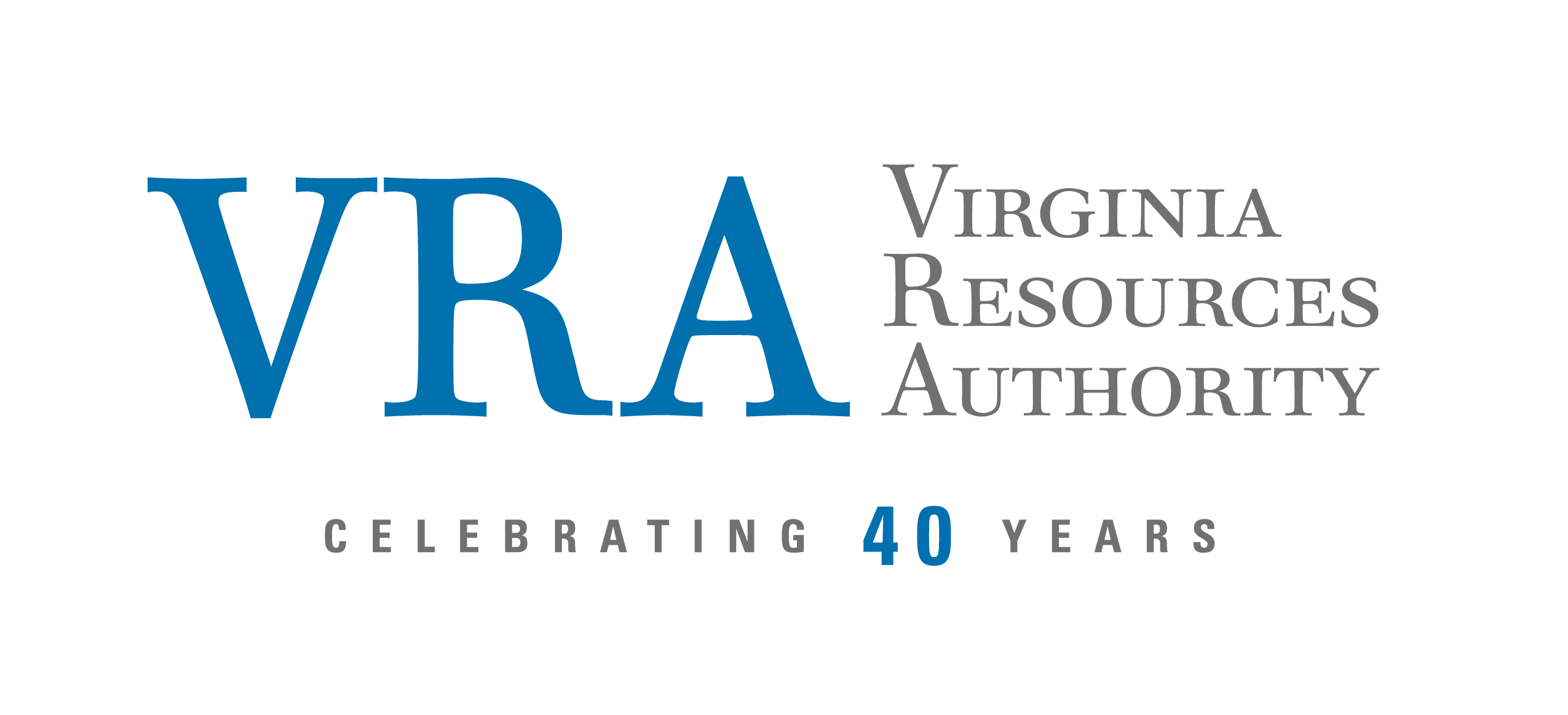eNews – March 29, 2024
Broadband Together in May, Small Towns Conference in June, Budget update...and more!
Friday, March 29, 2024/Categories: eNews

This edition of eNews is sponsored by Virginia Resources Authority working with its state agency partners, stakeholders, and local governments to provide cost-effective, responsible, and innovative financial solutions for borrowers to support vibrant and resilient communities. Learn more >
VML News
Finance
Health & Human Services
Opportunities & Resources
VML News
Broadband Together Conference to be held May 16-17

Join the Virginia Municipal League, the Virginia Association of Counties, and the Broadband Association of Virginia May 16-17 at the Hilton Short Pump (outside of Richmond) for a conference about broadband. Connect with industry experts, learn from communities who are leading the way and work together to bridge the digital divide and leverage broadband opportunities for all of Virginia.
Learn more and register here >.
VML Contact: Josette Bulova, jbulova@vml.org
Virginia Small Towns Conference happening June 10-11
 The Virginia Municipal League, in conjunction with Virginia Tech's Center for Public Administration and Policy, is pleased to announce the first ever Virginia Small Towns Conference!
The Virginia Municipal League, in conjunction with Virginia Tech's Center for Public Administration and Policy, is pleased to announce the first ever Virginia Small Towns Conference!
This event will be held at the Southwest Virginia Higher Education Center in Abingdon, June 10-11. Town managers, mayors, and elected officials are encouraged to attend to learn about:
- Governance Issues
- Strategic Planning
- 2204 Legislative Update for Towns
- Housing Solutions
- Council Relations
- ...and more!
A save the date flyer is available here >.
Registration and lodging info will soon be available here >.
Contact: Stephanie Dean Davis | (804) 980-5549 or sddavis@vt.edu
VML staff reports on the 2024 General Assembly: Webinars coming in May
With the General Assembly scheduled to reconvene on April 17 and the budget seemingly set for significant changes, much remains to be decided. After the dust settles, VML staff will present summaries of the actions of the 2024 General Assembly affecting localities. Please save the date and plan on attending the appropriate webinar:
- Towns: Wednesday, May 8 | 11:00 a.m. – 12:45 p.m.
- Cities and Counties: Thursday, May 9 | 11:00 a.m. – 12:45 p.m.
A link to register for these sessions will be available on the VML Events List next week.
VML Contact: Rob Bullington, rbullington@vml.org
VML accepting applications for Chief Administrative Officer position
This position performs professional level services in a variety of financial operational functions and runs the day-to-day operations of the league as delegated by the Executive Director.
A full description and list of essential qualifications is available here >.
To apply, please send a resume and letter of interest to VML Executive Director Michelle Gowdy at mgowdy@vml.org with "VML CAO Position" in the subject heading.
VML Contact: Michelle Gowdy, mgowdy@vml.org
Finance
“To amend or not to amend, that is the question.” – A brief update on the budget
In less than two weeks, we will know if the Governor has decided to send down amendments to HB 29 and HB 30, the budget bills approved by the General Assembly on the last day of the 2024 Session. The deadline for submission of amendments is midnight on Monday, April 8th.
Despite much speculation to the contrary, I suspect that the Governor will propose changes to the budgets sent to him and not veto the bills in their entirety. A veto would be an unprecedented action that would put the Commonwealth in uncharted waters.
That said, precedents seem to be falling by the wayside of late, which adds another layer of uncertainty to the current budget scenario.
First, the Governor embarked upon a series of campaign-style events recently, criticizing lawmakers for sending him what he called a “Backward Budget”, presumably because it imposes sales taxes on digital services without providing additional tax relief, as he had proposed. While the General Assembly built upon the Governor’s recommendation to modernize the sales tax system by levying taxes on digital services, the Conference Agreement went further by imposing the tax on businesses, which the Governor had exempted in his proposal.
Those decisions generated more than $2.0 billion in general fund resources, compared to the Governor’s introduced budget. The General Assembly baked the additional monies into their agreed-upon budget, investing in K-12 education, colleges and universities, behavioral health services, and salary increases for state employees.
Second, the Governor reached out to House and Senate budget writers asking them to negotiate a series of amendments that he’d introduce to alter the budget they’d just sent him. This, first-of-its-kind request, seems unlikely to happen given published reports about how those initial conversations went when a virtual budget meeting was held last week.
Finally, the General Assembly embarked upon their own campaign, a three-day “Families First” sojourn across the Commonwealth to promote their budget, trumpeting “higher spending on K-12, higher education and mental health”, in their version of the budget, according to media reports.
Adding acrimony to what was already expected to be a long and contentious day at the Reconvened Session (happening Wednesday, April 17), late Wednesday the arena deal that the Governor all but demanded be included in the budget, officially fell through.
Those who enjoy drama with their politics are certainly enjoying the recent developments outlined above. However, those of us who enjoy certainty with the budget process have less to celebrate. Indeed, what all of these forces mean for the budget remains to be seen. Good theater or not, we’ll be watching.
VML Contact: Joe Flores, jflores@vml.org
Get those revenue and expenditure reports to the Auditor of Public Accounts (APA) as soon as possible!
As of March 1, 2024, the APA has communicated that ten cities, seven towns, and 25 counties, have yet to comply with Section 15.2-2510 of the Code of Virginia, that requires localities with populations exceeding 3,500 or having a separate school system to file by December 15 each year, “a detailed statement of revenues and expenditures accompanied by the locality’s audited financial report to the APA.” Further, the Code requires a locality to post a public statement if the audit is delayed and incomplete and notify the Auditor of Public Accounts.
Earlier this year, this information was communicated to the members of the Joint Legislative Audit and Review Commission (JLARC). Delays in transmitting timely data to the APA was highlighted by JLARC last summer. In response, the former chairs of the House Appropriations and Senate Finance & Appropriations Committees asserted that localities should not delay in submitting this required information.
To stay in the good graces of the Commonwealth, but more importantly, to ensure compliance with the Code of Virginia, VML encourages every locality to transmit the required information ASAP to ensure its inclusion in the final report of 2023 Comparative Report of Local Government Revenues and Expenditures, that the APA is hoping to finalize in April.
VML Contact: Joe Flores, jflores@vml.org
Health & Human Services
Comment period open for CSA proposed policy changes
Public comment is open until May 2, 2024, on proposed changes to a Children’s Services Act (CSA) policy (Policy 4.5.2) regarding pool fund reimbursement time frames and particularly the year-end reimbursement time frame and requirements. This includes more specific language defining “good cause” reasons/legal justification for localities requesting a waiver from the September 30 final year-end report. It also specifies what does not constitute “good cause” on the part of a locality in requesting a waiver, and the time frame in which a waiver must be requested.
New proposed language also specifies that a locality may submit requests for reimbursement on a monthly basis but must report at least every quarter and that a reimbursement report must be submitted for each calendar month even if no expenditures were made during that month.
Another proposed change requires localities to adopt procedures to:
- Reconcile actual CSA reimbursements against expected reimbursements using local general ledgers and the Pool Fund Distribution History, Pool Transition History, and other available reports on the CSA website.
- Address position vacancies, including temporary unavailability, in the roles of Report Preparer or Fiscal Agent that affect the timely submission of CSA reimbursement requests.
The public comment page, which includes a link to the full text of the proposed policy can be found here: Public Comments (virginia.gov)
VML Contact: Janet Areson, jareson@vml.org
Opportunities & Resources
2024 National Stormwater Policy Forum: Hybrid event happening April 8
The 2024 National Stormwater Policy Forum, a half-day event co-led by the Water Environment Federation (WEF) and the National Municipal Stormwater Alliance (NMSA), will take place during Water Week on Monday, April 8 beginning at 12:30 p.m. and concluding at 5:00 p.m. Co-hosted by the National League of Cities (NLC) and the National Association of Counties (NACo), the event provides an opportunity for WEF, NMSA, NLC and NACo members and others to learn about current policy issues driving the stormwater sector today.
Register to attend in person (Washington D.C.) >
Register to attend virtually >
NLC Contact: Carolyn Berndt, berndt@nlc.org | (202) 626-3101
VDOT Transportation & Land Use Forum being held May 9
The Virginia Department of Transportation (VDOT) will be holding its “Coordinating Transportation & Land Use Forum” on Thursday, May 9th (see website link below). The Forum will be an in-person and broadcast hybrid event.
The Forum will be held at the Daniel Technology Center of the Germanna Community College in Culpeper. Details regarding the Forum are posted on the event’s website at 2024 VDOT Land Use Forum.
The Land Use Forum focuses on VDOT’s external customers. The event’s primary participants include staff representing localities, Planning District Commissions, Metropolitan Planning Organizations, the development community, community groups, and VDOT.
The Forum will begin at 9:00 a.m. and should end at 4:00 p.m. This is a free event. For in-person participants, VDOT will be providing a continental breakfast & lunch.
The Forum’s agenda is being finalized. The following topics will be presented at the Forum:
- Arterial Preservation, Innovative Intersections, and Virginia's Intersection and Interchange Capacity Assessment Program
- Bike/Pedestrian Planning Resources for Everyone
- Community Wayfinding Program
- DRPT Planning and Bus Stop Shelters
- Electric Vehicles: Planning for the Future
- Henrico County Quick Build Pedestrian Projects Process
- Land Use Planning Decisions and Impact on Land Use
- Tyson’s Expansion and Deployment of Tyson’s Vision
- Role of MPOs in Land Use
- Virginia’s SmartScale System
- VDOT Design and Specific Policies
- VDOT Involvement in Land Use and General Assembly Update
- VDOT Pathways for Planning (P4P)
Prior to May 9, the Forum’s website will be updated to provide additional information about this event.
VDOT Contact: Lynne Lloyd, lynne.lloyd@VDOT.Virginia.gov
U.S. Department of Energy-funded electric vehicle readiness program launches across United States
The Interstate Renewable Energy Council (IREC) and partners are excited to launch Charging Smart, a new designation program that awards communities for electric vehicle (EV) readiness with a special focus on EV charging. Charging Smart is funded by the U.S. Department of Energy (DOE)’s Vehicle Technologies Office (VTO). The program provides personalized, no-cost technical assistance to help municipalities set and achieve policies that facilitate the equitable expansion of EVs and EV charging infrastructure in their community. Local governments that achieve certain metrics are awarded bronze, silver, or gold designations, a public recognition of their status as an EV-friendly community.
Charging Smart is launching a pilot phase for local governments in the states of Colorado, Virginia, and the regions of North Texas and Southern California. Communities in Minnesota, Michigan, and Ohio are already engaged in a developmental phase of the program, and communities from one of these states are expected to become the first Charging Smart designated cohort later this spring. A comparable program has already been launched in Northern Illinois in collaboration with Charging Smart. Charging Smart will be made available to communities throughout the U.S. in the future.
Full details on the Charging Smart program, along with information on how eligible communities can participate, are available at ChargingSmart.org.